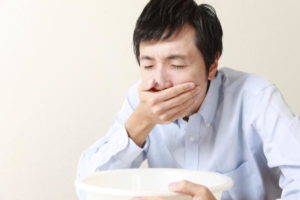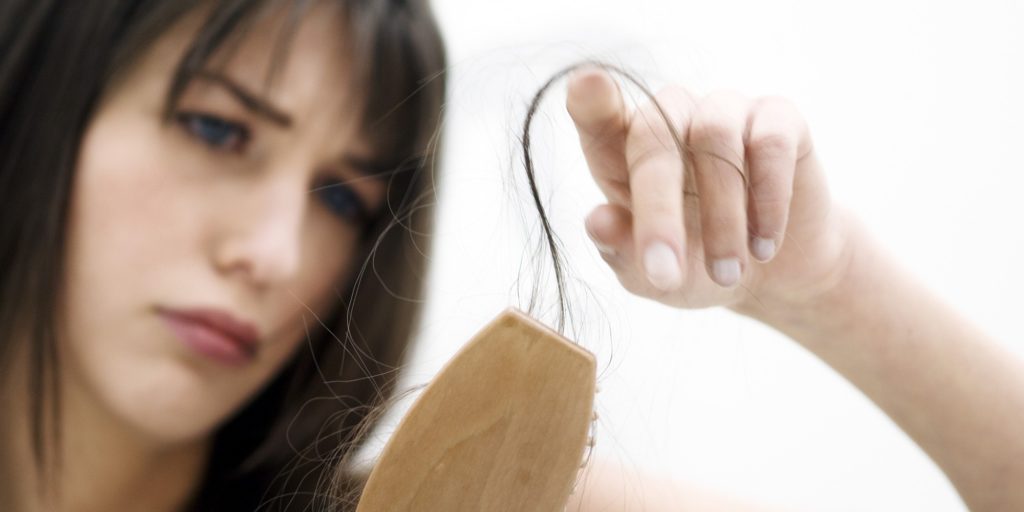
Hard Health Talks: 4 Side Effects Of Cancer Treatment
The National Cancer Institute (NCI) estimates that more than 2.5 million men and women were diagnosed with some form of cancer in 2015. The treatments often produce side effects including fatigue, severe pain and nauseacaused by radiation therapy, chemotherapy or surgery.
Unpleasant Truth about Cancer Treatment Side Effects
The unpleasant truth is that intensive cancer treatment side effects can take over your daily life. Such treatments can make patients miserable and uncomfortable, so it is important to cope with some of the common side effects.
4 Side Effects of Cancer Treatment
Side Effect #1 – Fatigue
 Radiation therapy and chemotherapy can cause fatigue and so can the anemia that frequently comes with regular treatment. [thrive_custom_box title=”” style=”light” type=”color” color=”#1871bf” border=””]For at least 60 percent of cancer patientsfatigue is a severe problem. Such fatiguecaninterfere with daily activities aspatients usually find it may not be relieved by rest.[/thrive_custom_box]
Radiation therapy and chemotherapy can cause fatigue and so can the anemia that frequently comes with regular treatment. [thrive_custom_box title=”” style=”light” type=”color” color=”#1871bf” border=””]For at least 60 percent of cancer patientsfatigue is a severe problem. Such fatiguecaninterfere with daily activities aspatients usually find it may not be relieved by rest.[/thrive_custom_box]
However, patients undergoing chemotherapy treatment can try to maintain a correct nutritious diet, rest if they feel tired and exercise daily. It is important to note that fatigue does not meanthat thetreatment is not working or that cancer is getting worse, it is just a side effect of chemotherapy.
Side Effect #2 – Nausea
 Most often, chemotherapy is the treatment that most commonly causes vomiting and nausea. In that situation, patient will be given anti-nausea medication, but studies have proposed that patients’ mental condition contribute to the occurrence of nausea during chemotherapy.A 2013 study conducted by the UCM University of Madrid found that women who thought they would experience nausea from chemotherapy were six times more likely to do so than patients who thought nausea was very unlikely.The study does propose that a optimistic attitude prior to treatment could help decrease nausea during chemotherapy. Some people also find it helpful to avoid fried, salty greasy or spicy food.
Most often, chemotherapy is the treatment that most commonly causes vomiting and nausea. In that situation, patient will be given anti-nausea medication, but studies have proposed that patients’ mental condition contribute to the occurrence of nausea during chemotherapy.A 2013 study conducted by the UCM University of Madrid found that women who thought they would experience nausea from chemotherapy were six times more likely to do so than patients who thought nausea was very unlikely.The study does propose that a optimistic attitude prior to treatment could help decrease nausea during chemotherapy. Some people also find it helpful to avoid fried, salty greasy or spicy food.
Side Effect #3 – Hair loss

Chemotherapy medications aim to kill all quickly dividing cells in the body, so it leads to hair loss.Some patients also losetheir armpit hair,pubic hair, eyebrows andeyelashes in this process. Some patients simply let their hair fall out while others cut off their hair before treatment. Many personscovers their heads with scarfs wigs or hats.Severe hair loss usually occurs about two to four weeks after the preliminary treatment.It is important to understand thathair loss from such treatment is temporary,it will grow back six to eight months after the last chemotherapy.
Side Effect #4 – Hearing loss
Severe irreversible progressive audible range losscan come from chemotherapy and intensive radiation therapies. Youngstersshould have regular systematic audiometric tests, particularly for rate of recurrence above 3 kHz.
[thrive_custom_box title=”” style=”light” type=”color” color=”#dd2323″ border=””]That is important as the Cisplatin and Carboplatindrugs harm the cells,causing the receptors to be less receptive to sound waves[/thrive_custom_box]A newest study by French scientists showed that this accident is most commonwithinelder patients, possibly since they have taken in huge amounts of different remedies over their lives.
